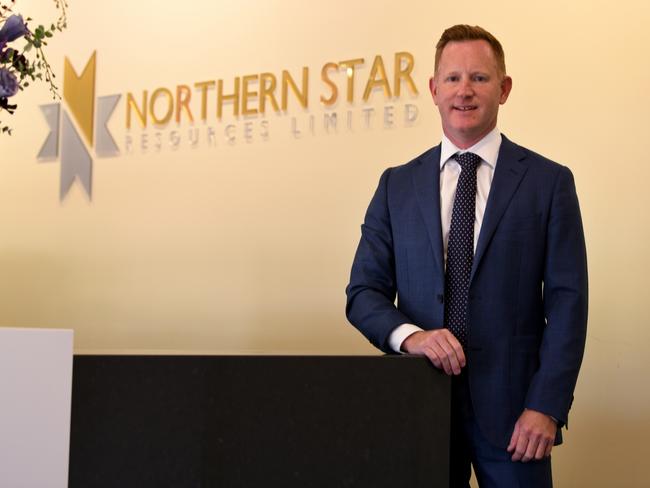Pratt family moves first in legal stoush with Alex Waislitz

Similar to a column of troops or a shipment of missiles mysteriously appearing on the eve of warfare, we’ve detected some anomalous corporate manoeuvring by the billionaire Pratt family as their legal skirmish looms against fellow rich-listerAlex Waislitz.
Paperwork filed by Deloitte reveals Waislitz and ex-wife Heloise Pratt have been delisted as directors from eight companies linked to their jointly owned Thorney Investment Group, a stock-investing empire worth upwards of $1.3bn.
For anyone unaware of this slapfight: Pratt is suing Waislitz in the NSW Supreme Court alleging “criminality” and misconduct in the management of the aforementioned Thorney. Waislitz says he’ll vigorously defend the allegations, and he has until Christmas to submit the makings of a defence.
Gone, too, from these entities is Waislitz’s brother Avee, a defendant in the same litigation proceedings, along with a few others. But the really intriguing bit is that Robert Kaye and Vin O’Halloran, both group executives at Visy (owned by the Pratts) have stepped up as sole office holders of these companies.
You’re wondering what this means? It means the Pratts have mobilised to take charge of a set of businesses that Waislitz has hitherto enjoyed controlling for years, but which were never really his to begin with. It’s doubtful whether they even needed Waislitz co-operation to do this – they may have even just kicked him off.

Thorney Equities is one of the downstream companies in question. It’s caught up in a separate and very messy legal proceeding involving Waislitz, his partner Rebekah Behbahani and her sister Venus Behbahani, a former TV personality on the Real Housewives of Melbourne.
Venus is suing Waislitz and her sister over a townhouse in the Melbourne suburb of Toorak (belonging to Thorney) which was allegedly promised to Venus some years ago. Her contention is that, in exchange for the property, Rebekah was given control of Behbahani Productions, a business created by the two sisters.
Why would the Pratts want control of a company bound up in litigation? Because they don’t think Waislitz should be in charge of a company whose assets have (allegedly) been put at risk by his behaviour.
Meanwhile, we note the strange output from Rebekah’s Instagram account over the past week, including what appears to be a very-badly telegraphed snipe at Heloise Pratt.
“Alex built his own success, it wasn’t passed down to him from generational wealth,” Rebekah wrote in one post. She insisted to us that it wasn’t a swipe at the bountiful inheritance left to Heloise and her siblings by the late family patriarch, Richard Pratt (the irony being that Pratt’s seed funding was used to launch Waislitz’ Thorney Investments in the first place).
And what to make of the bizarre video of Rebekah teasingly singing into the front camera of her mobile phone? “You don’t know … what we’re doing. You don’t know. You have no idea.”
No, said Rebekah, it wasn’t a cryptic message to the Pratt family about the impending lawfare between them. She was just singing about her career and “some exciting news ahead”. The video, she added, “had no relation to Alex or his former wife.”
She’s right, though. We have absolutely no idea what she’s doing. YB
Playing monopoly
Kind of ridiculous to see Kyle Mangini, global head of IFM’s $110bn infrastructure fund, lecturing everyone in Thursday’s Fin Review about the ethics of monopoly ownership. “If you own a monopoly asset, never behave like a monopolist,” Mangini said, not unlike Dracula saying: bite people, yes, but try not to act like a bloodsucking vampire.
And there is no profit-reaping vampire of Australian infrastructure quite like IFM, which owns large stakes in Sydney Airport, but also Brisbane, Melbourne, Adelaide, Perth, Alice Springs and Darwin airports. You basically cannot fly in this country without IFM clipping the ticket.
“Invest in your people, invest in your system and treat your customers like customers,” Mangini extolled.

Has this guy caught a plane lately? Has he tried parking a car at an IFM-owned airport? And what does it even mean to “treat your customers like customers”? Is that why we’re all paying $5 for a sodding bottle of water at the Zambrero in the Sydney T2 food court?
Not one, but two former competition chairmen have repeatedly blamed the airports for the outrageous gouging of travellers.
Allan Fels (with his own lucrative monopoly on running independent inquiries) said as recently as March that airports, with their “very high degree of monopoly”, were being “enabled to overcharge”.
Fels’ successor at the ACCC, Graeme Samuel, has been saying the same for years. Unlike airlines, subject as they are to competitive pressures, Samuel says airports have the “lightest regulation” and “earn the biggest profits in the world”.
And here’s Mangini, sitting atop this gouging racket – Mr Milburn Pennybags himself – preaching as though IFM isn’t the private, price-gouging monopoly airport owner that everyone (grudgingly) accepts, despite the daily fleecing, in order to travel like a mensch.
It must be heartbreaking for Mangini to spend his downtime in Noosa, where he and wife Amanda own a $13.5m property. The closest airport is Maroochydore, one of the few in Australia that IFM doesn’t own. YB
Making them pay
Massive props to WA mining services firm NRW Holdings, where shareholders delivered a seventh straight strike against the company’s executive pay scheme this week.
NRW hasn’t gotten its remuneration report through an AGM unscathed since 2017. If it happens again next year the company’s board will face an unprecedented fourth spill motion – though they got through the last three without too much trouble.
Record results and a strong market performance from the company clearly mollified some shareholders, though. This year’s 26 per cent vote against the report was less than half of the 58.5 per cent protest vote in 2023.
Still, in an increasingly chaotic world it’s good to have one constant – governments have come and gone, wars have broken out, but throughout it all NRW shareholders still think managing director Jules Pemberton gets paid too much.
But NRW is hardly alone this year.
Shareholders have been swinging the baseball bats with abandon across a swath of meetings of Perth’s cosy resources fraternity.

Mineral Resources boss Chris Ellison may have taken the better part of valour and quit the Delta Lithium board ahead of this week’s AGM, but that didn’t stop holders delivering a 30 per cent vote against options packages for directors, including new chairman Nader El Sayed.
Sandfire Resources copped a big 56 per cent vote against its pay report last week, despite its shares travelling pretty well for the year. Almost half of shareholders at former market darling Bellevue Gold voted against chief executive Darren Stralow’s performance rights, and Northern Star Resources boss Stuart Tonkin watched on as 40 per cent of shares run against his own rights package.
Bill Beament’s Develop Global only narrowly avoided a strike, with protest votes across a range of motions, and Ivan Vella’s first AGM as the IGO boss also copped a strike on executive pay. Pilbara Minerals boss Dale Henderson’s performance rights were hit with a protest vote, but struggling lithium miner Liontown Resources saw all of its resolutions sail through easily.
There are two broad schools of thought on the reasons. The first blames proxy advisers’ nitpicking reports on “corporate best practice”, and who clearly don’t understand why the WA resources industry shouldn’t have to pay any attention to it.
Alternatively, it could just be that shareholders are a bit sick of being asked to vote for lavish pay packets and generous share issues in the mining industry during a cost of living crisis.
But, judging by the NRW example, protest votes aren’t really likely to change things anyway. NE



